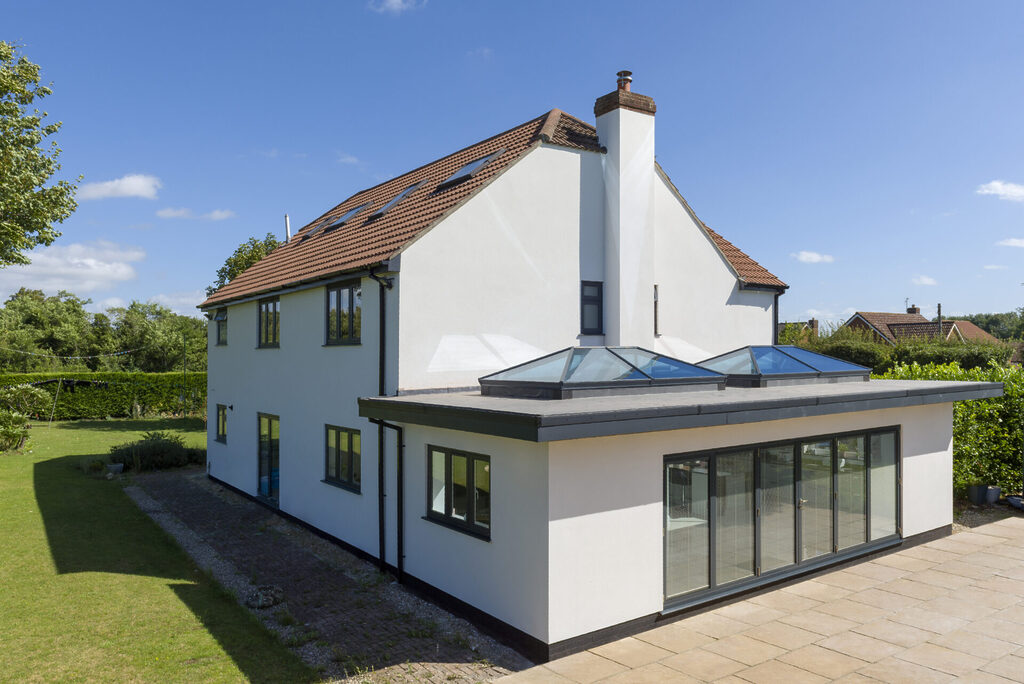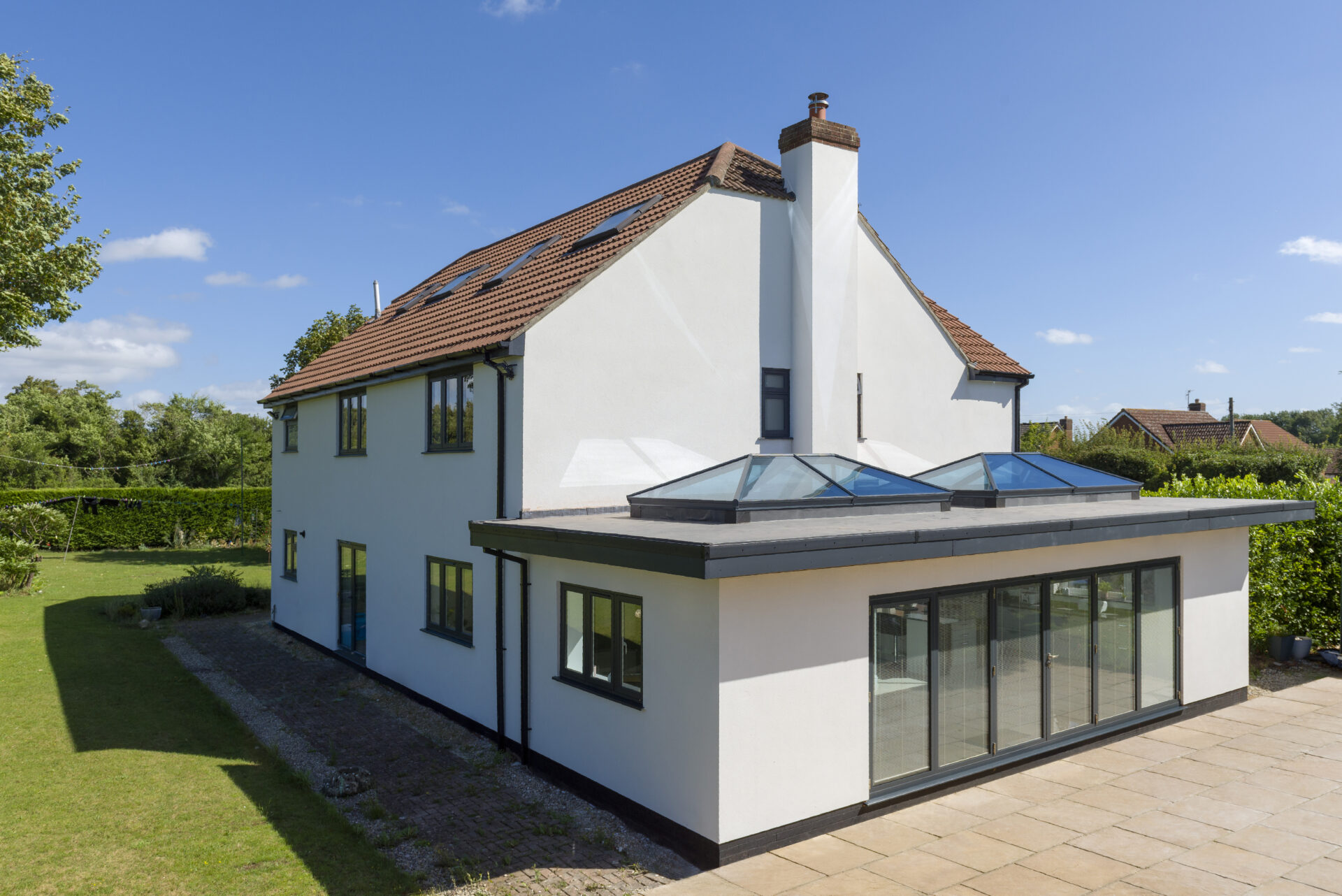Understand Permitted Development and planning permission in 2025—key updates, project types, and how to stay compliant with UK regulations.
What You’ll Learn:
- What exactly is Permitted Development
- Whether Permitted Development Rights apply to your project
- The latest changes to Permitted Development Rights (PDR) in 2025
- Limitations and exclusions to be aware of
(Estimated Reading time: 6-7 minutes)
Introduction
Planning a home improvement project? Thanks to permitted development rights you might not need full planning permission at all. Many homeowners can extend or upgrade their homes without the paperwork and delays.
In 2025, the UK government has introduced significant updates to Permitted Development Rights (PDR), aiming to simplify the process for homeowners to extend and renovate their properties without the need for full planning permission. These changes are designed to reduce bureaucracy and encourage home improvements.
However, understanding the nuances between what falls under Permitted Development and what requires planning permission is crucial. This guide will help you navigate the updated regulations, ensuring your project proceeds smoothly — all in simple, jargon-free English. We’ve also included official links and helpful tips to ensure you’re fully informed.

What is Permitted Development?
Permitted development rights are a set of rules laid out by the UK Government that allow homeowners to make certain changes to their property without needing to apply for planning permission.
These rights apply to many common projects like:
- Rear extensions
- Loft conversions
- Rooflights and roof lanterns
- Garden rooms and outbuildings
- Replacing windows and doors
“Think of permitted development as a fast-track route for home improvements – no red tape, just build.”
Do Permitted Development Rights Apply to My Property?
Permitted development typically applies if:
✅ Your home is a single dwelling (not a flat or maisonette)
✅ You’re not in a designated area (e.g. Conservation Area, AONB)
✅ Your home hasn’t already been heavily extended
You must still follow building regulations, even if planning permission isn’t required.
Check your eligibility on the Planning Portal.
Permitted Development Rules for 2025: At a Glance
Single-Storey Rear Extensions
- Up to 3m deep for semi-detached and terraced houses
- Up to 4m deep for detached houses
- Maximum eaves height of 3m, and total height of 4m
- Must not cover more than 50% of your garden
👉 If you want to extend further (up to 6m or 8m), you’ll need to submit a Prior Approval application.
Double-Storey Extensions
- Can extend up to 3m from the rear wall
- Must not be closer than 7m to the rear boundary
- Roof pitch must match existing house
Roof Lights & Lanterns
- Can project up to 150mm from the roof slope
- Must not be higher than the roof’s highest point
- No side-facing windows without obscured glazing
Explore roof options:
👉 Korniche Roof Lights
👉 Atlas Roof Lanterns
Outbuildings & Garden Rooms
- No higher than 2.5m (flat roof) or 4m (pitched)
- Not in front of the house
- Must not cover over 50% of the garden
- No sleeping accommodation
Loft Conversions
- Up to 40m² for terraced and 50m² for detached/semi-detached
- Must not extend beyond the original roof plane (unless at rear)
- Dormers allowed at the back, not the front
Key Rules and Exceptions to Know regarding Permitted Development
🚫 Flats and maisonettes do not have permitted development rights
🚫 Homes in Conservation Areas, National Parks, AONBs, and World Heritage Sites may have restrictions
🚫 If your home is already extended, your rights may be limited
🚫 You may still need building control approval even if planning isn’t required
Check restrictions specific to your location with your local authority or use the interactive guide from the Planning Portal.
Applying for a Lawful Development Certificate
Even if planning isn’t required, it’s a smart idea to get a Lawful Development Certificate. This is proof that your project was legal — handy when selling your home.
You can apply online here:
👉 Apply for a Certificate of Lawful Development
How GFD Homes Can Help
At GFD Homes, we specialise in products that are fully compliant with permitted development:
✅ Bifold doors under 4m widths
✅ Roof lanterns that stay within 150mm projection
✅ Composite doors for front porch replacements
Plus, we can support you with:
- Technical specifications for planning documents
- Structural guidance for door and window openings
- Advice on U-values and building control compliance
“We work with thousands of UK homeowners and trade pros every year—making your project simpler, smarter and faster.”
Permitted Development: Conclusion
The 2025 updates to Permitted Development Rights offer homeowners greater flexibility in enhancing their living spaces. By understanding the scope of these rights and the distinctions from planning permission, you can make informed decisions about your home improvement projects. Always consult with your local planning authority or a qualified professional to ensure compliance and to take full advantage of the opportunities these changes present.
GFD Homes supply a selection of the best premium home improvement products on the market — all at a cost-efficient price.
✅ Aluminium or uPVC doors
✅ Composite front doors
✅ Heritage-style and modern glazing
✅ Customisable options to suit any style
🛒 Browse the full collection at www.gfdhomes.co.uk.
📞 Or call 01642 309576 for expert guidance and a no-pressure quote.
In a rush? Why not contact us via Whatsapp
Browse our articles to help you choose the best products for your home improvement projects
- Home Inspirations 2025: Ideas for Stylish, Functional Living
- Home Extension Ideas: What’s Trending in 2025 for Light, Space & Style
- How to Design the Perfect Kitchen Extension with Bifold Doors
- Trade Home Inspirations: looking for trade prices? Visit our trade site, The Trade Village.
FAQs: Permitted Development in Plain English
Can I build an extension without planning permission?
Yes – if it meets the size, height and design rules under permitted development.
Do I need building regs even if it’s permitted?
Yes. Structural safety, insulation, fire safety and electrics must meet building control standards.
How close can I build to the boundary?
Often you can build up to 2m from a boundary. Closer than that may trigger additional fire safety rules.
What’s the 45-degree rule?
It’s a guideline councils use to avoid blocking a neighbour’s light. It doesn’t affect PD rights, but may apply if you need full planning.
What if my neighbour objects?
If your project qualifies for PD, they can’t stop it. If Prior Approval is needed, they may be consulted.

